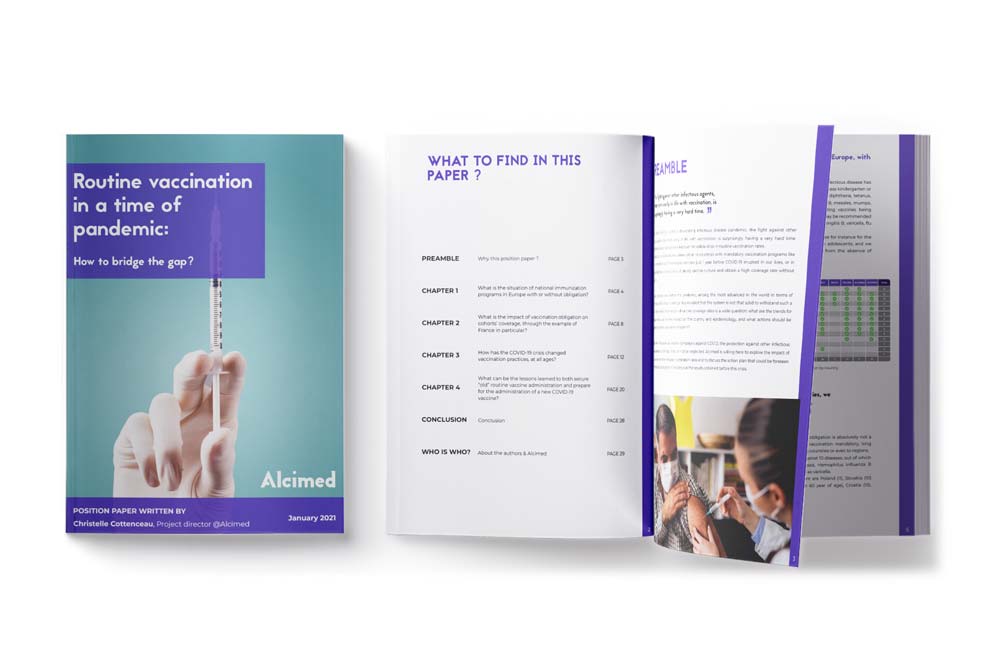Alcimed Position Paper – Routine vaccination in a time of pandemic

While all the spotlight is on the start of the vaccination campaigns against COVID-19, at the beginning of 2021, routine vaccinations are little talked about. However, the health crisis of 2020 and in particular the lockdown periods have not spared this major component of our health systems and alarm bells are ringing for the maintenance of all prevention policies and for making up for missed vaccinations.
Routine vaccination in a time of pandemic: how to bridge the gap?
For several years now, vaccination has been a subject of debate. Some European countries have chosen to implement mandatory vaccination for one or more products, without harmonizing their choices, such as France, Belgium, Italy or Poland. Others, on the contrary, have let citizens decide, while recommending and financing vaccines, such as the United Kingdom, Germany, Sweden or Spain, countries that are far from being the last in terms of vaccination, the recent crisis has again proven it!
So what difference can be observed between countries that have made these different choices? Is mandatory vaccination the right solution? Was it sufficient, in the context of the pandemic, as a safeguard against the decline observed worldwide?
The influenza vaccination campaign has also been a big news story in this pandemic period. Extraordinary situation: restrictions were imposed in order to prioritize the available doses for the most vulnerable people.
Also, the debate surrounding the vaccination against COVID is very active, and the choices made by decision-makers are not always understood.
In this world where the immunization maps are being widely reshuffled, in some cases upwards, in others downwards:
What are the potential public health risks, and how can we learn from the crisis to improve our practices for the future?
What you will explore in this position paper :
- What is the situation of national immunization programs in Europe with or without obligation?
- What is the impact of vaccination obligation on cohorts’ coverage, through the example of France in particular?
- How has the COVID-19 crisis changed vaccination practices, at all ages?
- What can be the lessons learned to both secure “old” routine vaccine administration and prepare for the administration of a new COVID-19 vaccine?
These are all questions that we are addressing, designed for all to raise collective awareness of the situation as well as to trigger consideration on different approaches, tested during this crisis, and which would deserve further assessment. Broadly speaking, the delicate alchemy that shapes public and patient adherence to medical innovation lies behind this subject.